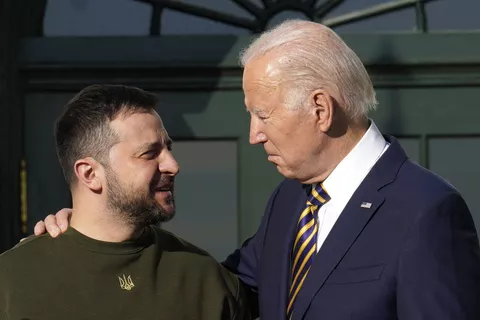Highlights
- Washington ends months of resistance, signaling a policy shift.
- The decision aims to bolster Ukraine’s negotiating position.
- Uncertainty looms over whether Trump will reverse Biden’s decision after taking office.
- Russia issues a warning of escalation if the U.S. loosens restrictions on weapon usage.
WASHINGTON, Nov 17 (Reuters) –
- President Joe Biden’s administration authorized Ukraine to use U.S.-made weapons for deep strikes into Russia, marking a significant policy shift in the Ukraine-Russia conflict, according to two U.S. officials and a source familiar with the decision.
- Ukrainian forces plan to launch their first long-range attacks in the coming days, sources reported, withholding specifics due to operational security concerns.
- The decision, made just two months before President-elect Donald Trump takes office on Jan. 20, follows persistent appeals by Ukrainian President Volodymyr Zelenskiy for expanded use of U.S. weaponry against distant Russian military targets.
- Biden’s policy change responds to Russia’s deployment of North Korean ground troops, which has raised alarm in Washington and Kyiv, according to U.S. officials.
- In his evening address, Zelenskiy hinted at imminent strikes, stating, “Strikes are not made with words. Such things are not announced.”
- The White House and State Department declined to comment, and the Kremlin did not issue an immediate response.
- Russian officials, however, issued stark warnings. Vladimir Dzhabarov of Russia’s upper house said the decision risks triggering “World War Three,” while Andrei Klishas claimed escalation could leave Ukraine in “complete ruins by morning.”
- Ukraine is likely to use ATACMS rockets, capable of reaching targets up to 190 miles (306 km) away, for these deep strikes, according to sources.
- Some U.S. officials remain skeptical about whether long-range strikes will significantly alter the war’s trajectory, but the move could strengthen Ukraine’s position in potential ceasefire negotiations.
- Trump’s stance on the policy shift remains uncertain. While he has criticized extensive U.S. aid to Ukraine and vowed a quick resolution to the war, his team has not clarified whether he will reverse the decision after taking office.
- Trump ally Richard Grenell condemned Biden’s move, accusing him of “escalating the wars before he leaves office.”
- Congressional Republicans previously urged Biden to relax restrictions on Ukraine’s use of U.S. weapons. Senior administration officials stated their intent to prepare Ukraine to fight effectively next year or negotiate peace from a stronger position.
‘WAY TOO LATE’
The U.S. estimates that over 10,000 North Korean soldiers have joined combat operations in eastern Russia, with most deployed to the Kursk region. Russia has advanced at its fastest pace since 2022, despite heavy losses, and Ukraine reported clashes with North Korean troops in Kursk. Facing personnel shortages, Ukrainian forces have lost parts of the territory they seized during their August incursion, which President Zelenskiy called a potential bargaining chip.
Alex Plitsas, a senior fellow at the Atlantic Council, argued that lifting targeting restrictions allows Ukraine to fight more effectively but criticized the delay in providing weapons like ATACMS, HIMARS, and F-16s, which he believes were needed much earlier. Despite Zelenskiy’s repeated appeals, the White House had hesitated to authorize deep strikes inside Russia, fearing escalation.
Republican Representative Mike Turner called Biden’s decision overdue but still too restrictive, adding that it pressures Vladimir Putin ahead of President-elect Trump’s return to the White House. Kyiv’s allies, while supplying weapons, have maintained limits on their use inside Russia to avoid provoking retaliation or nuclear conflict.
Polish Foreign Minister Radoslaw Sikorski endorsed Biden’s move, linking it to North Korea’s involvement and recent Russian missile strikes, stating that the decision speaks Putin’s “language” by removing restrictions on Ukraine’s missile use.

